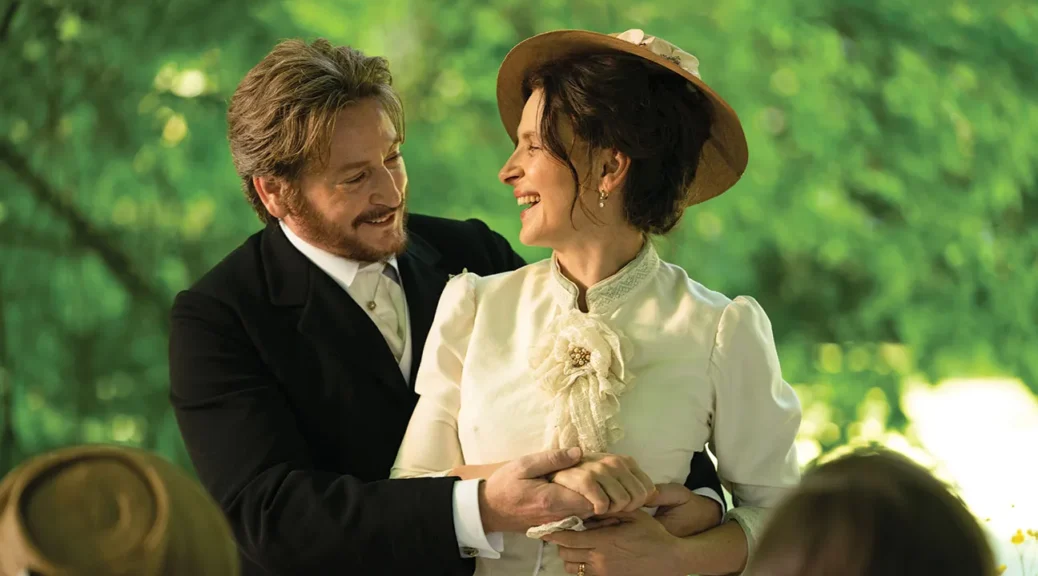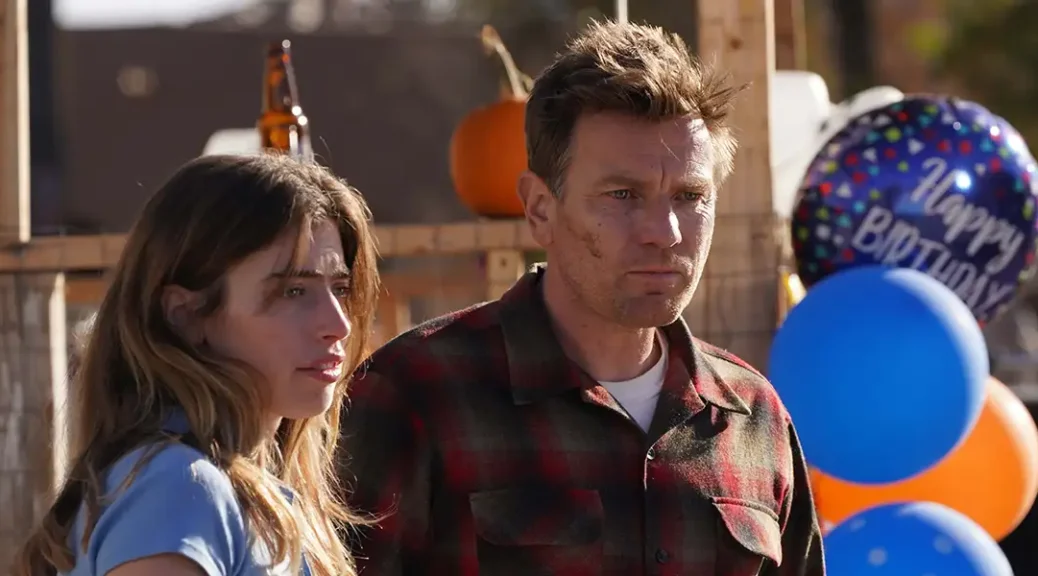Ordinary Angels
by George Wolf
It’s understandable if Ordinary Angels seems familiar. Hilary Swank playing a tireless do-gooder in a based-on-true-events drama with a vaguely inspirational title is probably going to feel that way.
And while the film does rely on plenty of broad-brushing, it ultimately mines enough nuance to find some genuine feels, as well.
Swank plays Sharon Stevens, a hard-partying beauty salon owner in Kentucky who’s hoping one day to mend the relationship with her estranged son, Derek (Dempsey Byrk). While waiting at the grocery store checkout, a local newspaper story gives Sharon’s life new meaning.
Five year-old Michelle Schmitt (Emily Mitchell) has a rare disease and needs a liver transplant to survive. Her father Ed (Jack Reacher‘s Alan Ritchson), still hurting from his wife’s fatal battle with Wegener’s disease, is facing a mountain of medical debt while struggling to raise Michelle and her older sister Ashley (Skywalker Hughes) as a single parent.
After so much heartache, Ed admits to his mother Barbara (Nancy Travis) that he’s losing his faith. Could this hardscrabble hairdresser at their door be a Godsend? The few thousand dollars she raises from a salon fundraiser is a darn good start.
Two-time Oscar winner Swank is perfect for the role, even if the script from Kelly Fremon Craig (Are You There God? It’s Me, Margaret) and Meg Tilly (the veteran actress with her first feature writing credit) doesn’t provide many edges, at least early on. Sharon is all “hush my mouth” spunk, smiling through her accent as she imposes her will on multiple situations and begins to feel interchangeable with similar characters from The Blind Side to Swank’s own Conviction.
Ritchson is fine and shares sweet chemistry with the two adorable young girls, though Ed also lacks the depth to move the character beyond any number of faith-based dramas following a basic heart string-tugging playbook.
Ordinary Angels does find a unique voice in the third act, when Ed’s patience wears thin, and Sharon is finally forced to confront the life she’s really trying to save. Plus, director Jon Gunn (The Case for Christ, The Week) moves away from the formulaic to develop some respectable tension when the call for Michelle’s life-saving transplant comes during a monster snowstorm.
That really happened, and the true story here does provide an inspiring example of the good that humans are capable of. No doubt we need that right now, and Ordinary Angels manages just enough extraordinary moments to please more than the choir.













